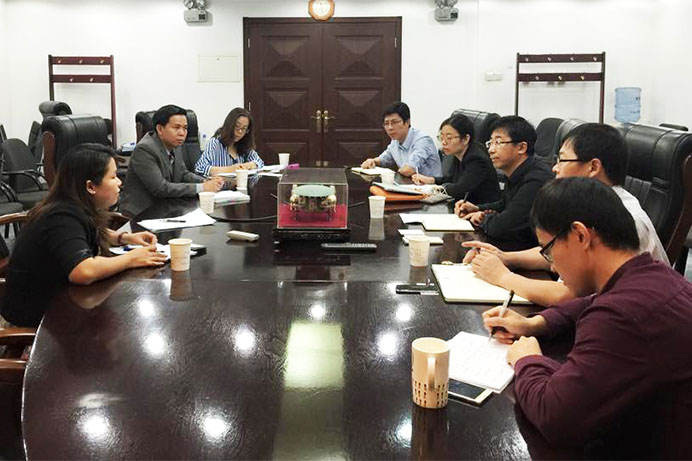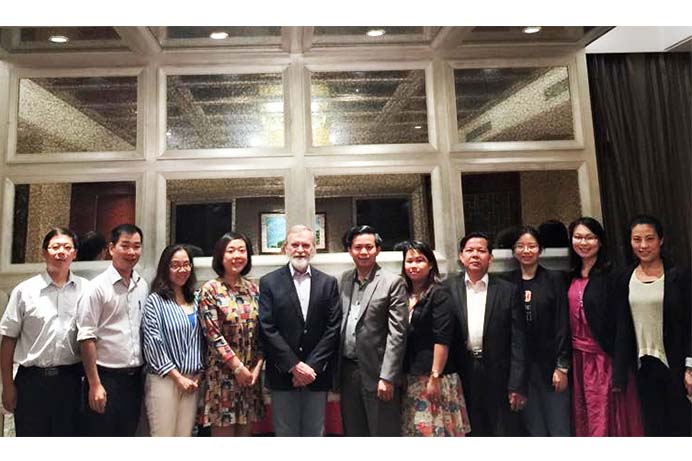
Beijing, Chinese, September 9 – 11, 2015: With the support from The Asia Foundation and Syn Tao Sustainability Solutions, two delegates NGO Forum on Cambodia, Mr. Tek Vannara, Executive Director and Mrs. Nop Navy, Land and Livelihood Program Manager, were invited to participate in a study tour in China.
The aim of this visit was to facilitate regional exchange of knowledge and experience in environmental monitoring of China’s growing overseas investments, as well as to promote best practices on environmental regulation compliance.
Various selected and important examples and good practice of Chinese companies were presented to the participants on the first day. Those topics comprised of:
- Corporate Social Responsibility (CSR) development in China and the pattern of Chinese overseas investment
- Introduction to EU FLEGT Initiative (EFI) in China initiated in 2003
- The influence of Chinese business ethics on modern enterprise management in China
- Core Value Chinese Culture
On the second day, the program continued with Workshop on Chinese Investment in Cambodia: Environmental Impacts, Social Impact and Local communities Relationship. To begin with the first session, Mr. Tek Vannara, Executive Director of NGO Forum on Cambodia gave a presentation on The State of Chinese Foreign Investment in Cambodia. In his presentation he showed that China is the largest investor in Cambodia (according to the Council for the Development of Cambodia). The cumulative Chinese investment totals 9.6 billion U.S. dollars from 1994 to 2013. The event kept going with many presentations provided by NGO representatives from China and from other countries.
On the last day, the organizers, arranged the visiting to different institutions, in order to learn and sharing experience upon the economic, environment and businesses development in China. The team was travelled to three important places counting of:
- Chinese Academy of International Trade and Economic Cooperation
- China Chamber of commerce of Metals, Minerals and Chemicals Import and Export (CCCMC)
- Associate Pro Li Li, University of International Business and Economic
Dr. Tek Vannara, NGOF’s Executive Director, shared the positive view from study visit to China, as Cambodian team had the opportunity to absorb great experience and knowledge from the Chinese companies in their countries. “Currently, Chinese companies have so many running projects in Cambodia working on the garment and footwear industries, banking and finance, agriculture, tourism, energy, mining, real estate, transportation infrastructures, and telecommunication. Otherwise, many of us, do not know the roots or where exactly these companies are coming from. From this trip, we learn the root of these investors. This trip will help us a lot in term of preparing the cooperation plans for further work in Cambodia to support the Cambodian development and the Cambodian people benefits,” he added. In relation to NGOs and private sector engagement, Mr. Vannara stressed that with the support from AFSC, NGOs in Cambodia had started to engage directly with company for instance on UDG case. NGOs also had meetings with Chinese Chamber of Commerce in Cambodia and also coordinated multi-stakeholders dialogues (government, company representatives, affected communities and NGOs) to find resolution on a long running conflict with UDG.
